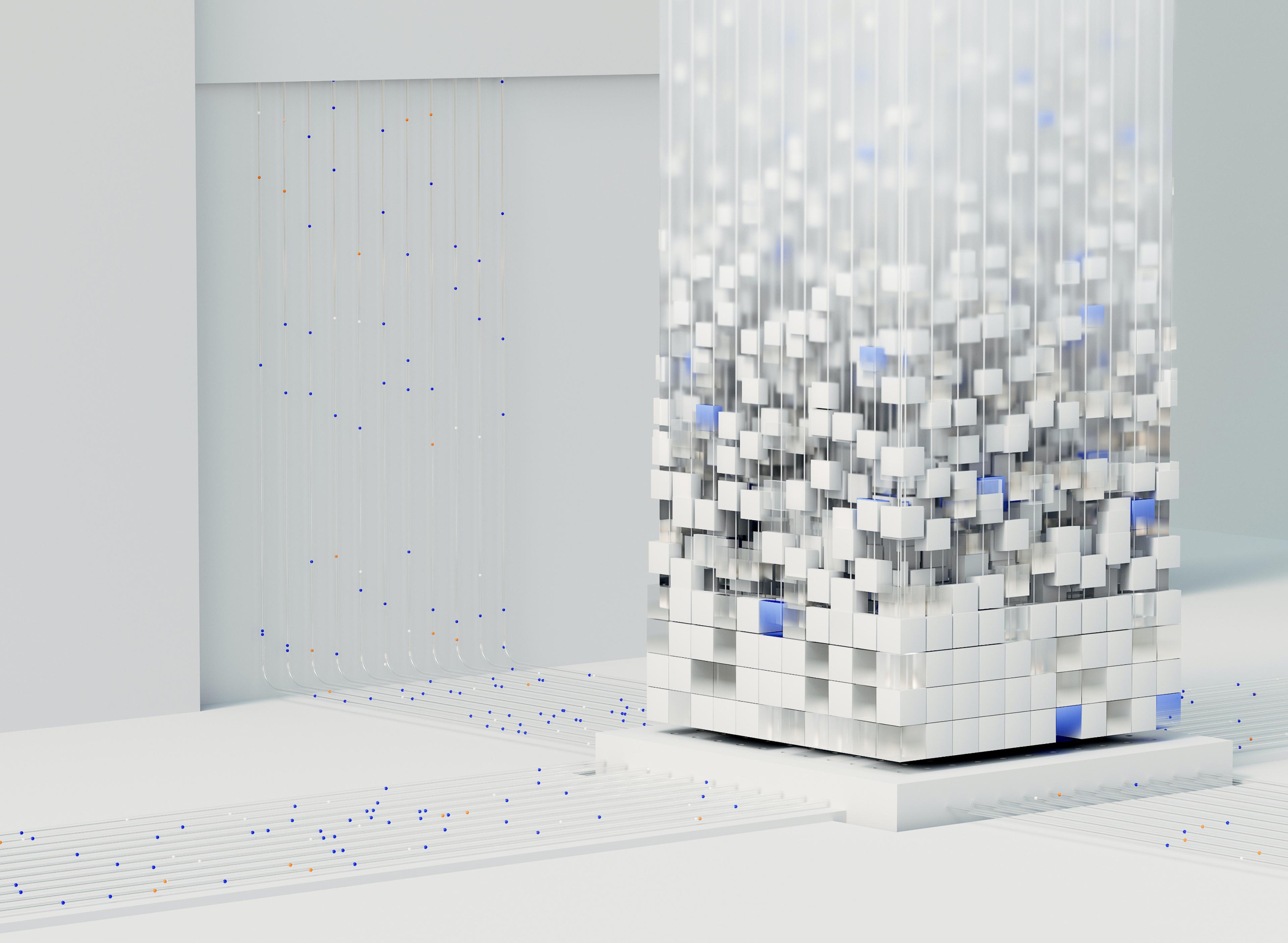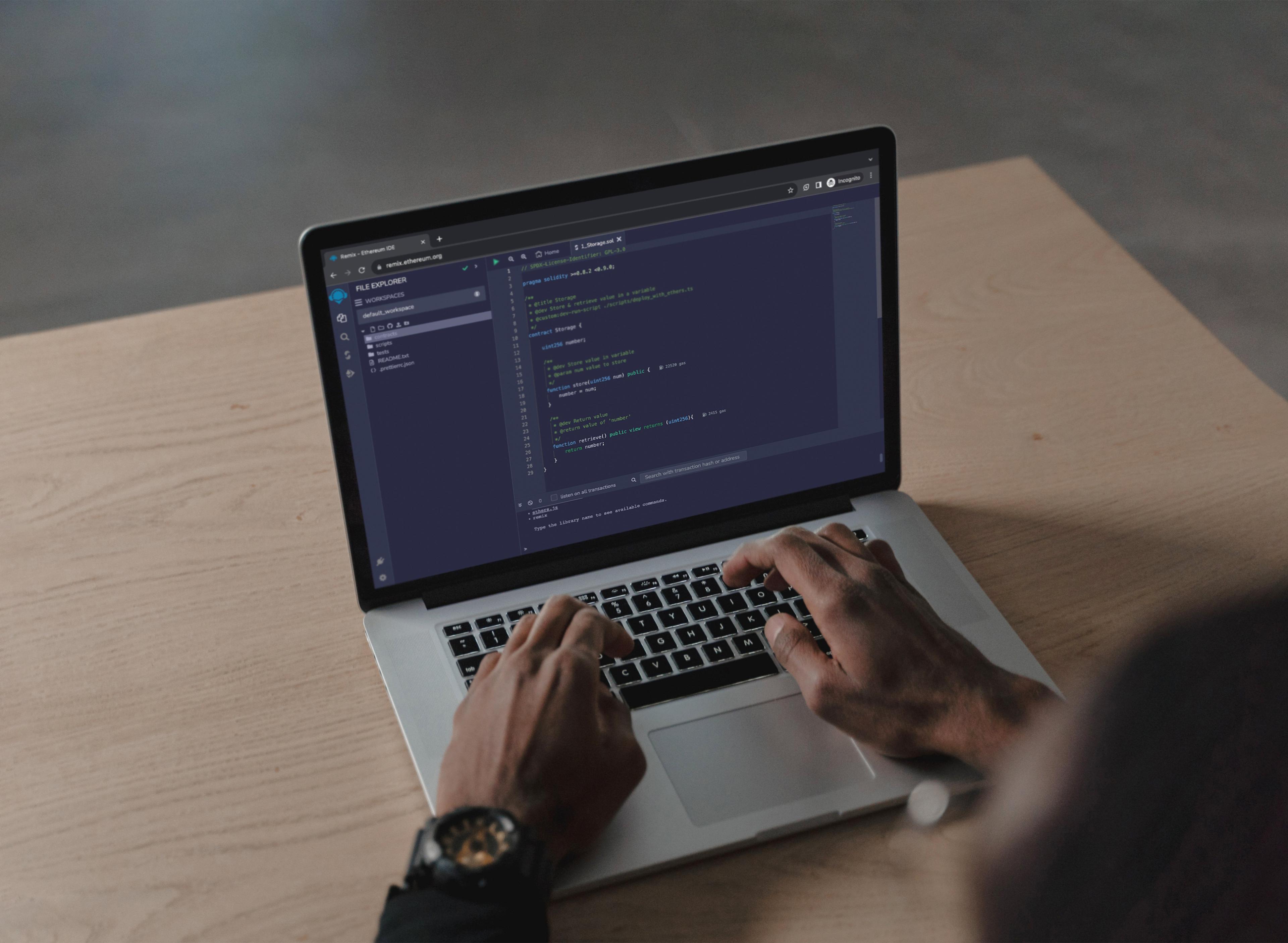
Generative AI and blockchain

With the line between human and automated creativity now blurred, entire industries — like education, law, and software development — grapple with the need for methods to discern whether any given content was created by man or machine.
So far, the best way to do so is by tracking down and identifying the source of the content . . . a ridiculously daunting task, right?
Not with blockchain.
“Now that AI content is everywhere, blockchain technology is uniquely positioned to solve the content sourcing challenge, as its core strengths lie in authentication, digital signing, and the ability to prove asset ownership and provenance,” explains Dave Hecker, Vention’s West Coast CTO.
In short, blockchain solutions have a largely untapped potential to revolutionize how we interact with generative AI . . . and it’s not even wishful thinking.
Great products are built step by step, sometimes brick by brick, sometimes block by block.
With AI, those blocks are knowledge, expertise, and confidence in your next move. Vention’s State of AI 2026 report brings you the industry insight behind all three.
The rise (and legal implications) of AI-generated content
Blockchain has come a long way since its earliest days of being treated as a solution in search of a problem. Although we’re conditioned to associate blockchain with fintech, existing use cases for the technology go way beyond cryptocurrencies, and savvy observers trust AI’s potential to usher in the big one.
“The generative AI boom might just be brewing the right conditions for blockchain’s long-awaited killer app to emerge.”
The key reason why is the widespread adoption of generative AI: It has already been implemented successfully, and at scale, for both individual and commercial applications. Use cases have found their way to chatbots, image generation ranging from artistic leisure to professional usage in graphic design, and even automation of article writing (including a pitch for real-time news writing by Genesis, a new tool from Google.)
And governments have taken notice, partially due to the implications of generative AI on copyright. The European Commission’s intellectual property division was quick to publish an article on the legal authorship of ChatGPT’s output not long after ChatGPT took the world by storm — with the cover image generated by OpenAI’s DALL-E, no less.
Meanwhile, across the Atlantic, the US Copyright Office answered a request from Congress and launched a new AI initiative that states that AI-based content is only copyrightable when humans have sufficient creative input or control over the result. It concludes that AI copyright ownership cases will have to be evaluated on a case-by-case basis.
But as AI-generated content becomes ever more sophisticated, there’s reason to believe that those ownership concerns may already be outdated. What once focused on the role of generative AI in creation is quickly moving towards verifying whether humans are actually humans.
“Blockchain’s reliability makes it an excellent solution to store and later prove data, but the real challenge here is digital identity. In order to prove that something was created by a human, the creators themselves must first prove that they are indeed humans, not bots.”
A “who's who” obstacle that blockchain is poised to solve
Distinguishing between flesh-and-bone and AI-created content isn’t a challenge only for humans. AI-text detection tools built on traditional software also suffer from low accuracy rates because their detection mechanism mimics how humans would do it: Examine the copy for specific word choices or grammatical patterns telling of AI.
Likewise, the go-to method for detecting AI-generated images has been metadata examination — a flawed process now being used by obfuscation programs to protect an artist’s style against image generators, in karmic payback.
Blockchain solutions, however, go layers deeper. Blockchain-based detection is based on tagging neither the style nor the substance of content, but its origin. The concept is borrowed from the real-world appellation control laws that protect and essentially trademark the geographical denomination of products such as champagne and port wine, which can only be branded so when produced in specific regions.
Similarly, by leveraging blockchain in the content creation process, human creators can employ authentication and digital signing to brand their work’s origin and provide verifiable proof that their work is truly theirs.
Furthermore, integrating blockchain into AI systems can establish trust and transparency not only for human creations, but for AI-generated content as well. Given that some AI-generated code has been known to contain harmful exploits disguised as human work, pairing AI and blockchain could let engineers cross-reference any allegedly fishy pieces of code against a blockchain-validated package database and verify the code’s authenticity and exact creation time.

The next iteration of supply chain automation
For years now, blockchain has been recognized as an efficient way to optimize supply chain management by making it more transparent. The idea is that blockchain can serve as a centralized ledger shared among multiple stakeholders who get notified any time the chain is amended.
For example, a private blockchain shared by a retailer and a supplier allows the former to request a new shipment of products by adding a block with that information to the chain. The supplier then confirms the request — either manually or through pre-agreed-upon smart contracts — with a new block on the chain acting as a data receipt, and then another one when the shipment is sent. When the shipment is received, the retailer acknowledges it in the chain, completing the cycle.
If the supplier requires bank loans to fulfill the order, their financial institution may also participate in the blockchain; this allows them to confirm order placements and seamlessly execute blockchain payments — actions that also get registered in the chain. As a result, all parties involved can simultaneously track the order flow and ensure accountability throughout the entire process.
However, keep in mind two facts: supply chains aren’t limited to physical products, and generative AI thrives when it comes to automating digital content.
Let’s imagine for a moment that an advertising company has received a request to create an animated video campaign, which requires a creative concept, a script, and digital artistry. By tapping into an internal supply blockchain integrated with generative AI, account managers can log client needs on the chain and use AI to auto-generate taglines, draft the script, and sketch storyboards, adding blocks for every task. The best part? Creative directors can revisit any past version to ensure a human touch and refine AI-generated content as needed.
If that sounds somewhat impractical, check out how the game industry — a sector well-known for its progressive use of AI and visual technology — is experimenting with generative AI. Advanced AI-generated video game characters already exist and carry the potential of shaving hundreds of hours of ideation and animation tasks off game developers.
Unexpected blockchain and AI use cases
The gaming, advertising, and logistics industries aren’t alone in experimentation with blockchain and AI projects. At least two other sectors are exploring how this tech duo can deliver enduring value to creators and consumers alike.
The first is social media, especially in the realm of digital marketing. With brand voice and identity playing a more prominent role in marketing than ever, protecting a brand’s authentic online content across platforms is mission-critical. Brands partnering with influencers can have those create verifiable digital identities and link them to their content independently of any platform.
The approach enables brands and consumers to authenticate influencers' legitimacy, ensuring genuine reach and accurate engagement metrics. Further, blockchain-based smart contracts can facilitate transparent and trustworthy collaborations between influencers and brands, while reducing fraud and enhancing the overall integrity of the digital marketing ecosystem.
Consider also education. AI doesn't just generate essays for school kids — its influence extends to the halls of higher academia, too, in what one could argue is yet another double-edged sword advance in educational technology.
Sure, generative AI can widen access and boost efficiency in academic fields, but let's face it: We've got to keep tabs on the authenticity and ownership of AI-produced research. Through that lens, there are ongoing ethical debates about whether it’s appropriate for Ph.D. students to blindly trust the aggregation and summary skills of AI tools like Scite and Scholarcy.
AI and blockchain integration can address this anxiety by weaving the research record of activities and findings into an immutable ledger. Similarly, researchers can timestamp their work on the blockchain to create an unalterable ‘paper’ trail that establishes provenance as well as a time and source of new information.
Near-future challenges of AI and blockchain integration
Despite the immense promise of AI and blockchain technology integration, seamlessly marrying the pair comes with its own issues. Blockchain and AI use cases are fast-paced fields where today's innovation quickly becomes yesterday's news.
Want a system that performs under load and scales fast? You'll need teams of developers who are pros in both blockchain and AI projects. That means staying sharp and up-to-date on everything from the nitty-gritty of distributed computing and consensus algorithms to AI modeling and cost optimization.
It’s also paramount for developers to anticipate governmental catch-up. State entities are routinely blamed for being too slow at curbing Big Tech excesses, and apparently, the lesson was learned: Government-let regulatory efforts are coming fast, with the White House taking an active role in pushing AI companies to seriously self-regulate or face consequences.
This means that development companies will not only need developers with nimble and ever-improving AI skills, but an acute market sense of “what’s next” to ensure their solutions are future-proof against upcoming legislation.
Plus, privacy concerns surge as another pain point in blockchain and AI projects where the ledger contains sensitive data — even data instances as simple as IP addresses. Developers must have critical expertise in creating robust cybersecurity environments to ensure legal compliance with directives such as Europe’s GDPR and its analogs. That will be the case for every public blockchain ever made, though private ones must also deal with membership control, authorization protocols, and identity certificates.
Blockchain's resilience against tampering ensures an increased confidence level for consumers and businesses that would otherwise be unattainable. And with reliable verification systems, benevolent creators in the AI space also benefit by fostering even greater trust in AI-powered systems.
All in all, blockchain offers a powerful tool for overcoming the challenges of generative AI and holding it to accountability standards. By properly leveraging AI and blockchain technology, we can bring transparency to AI-generated content and trust to the people engaging with it. If AI is here to stay, we need to handle it with off-the-chain integrity and professionalism.






